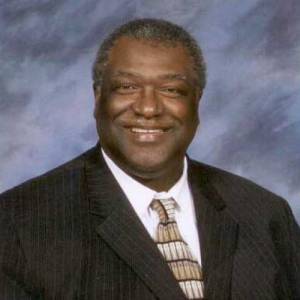
Rev Dr. John T Fowler
Pastor, Capital View Baptist Church
Mental health is an essential aspect of overall well-being, yet it remains a topic often shrouded in silence and stigma, particularly within the African American community. African American men face unique challenges and barriers when it comes to mental health, which can have significant consequences for their overall health and quality of life. In this blog, we will explore the mental health landscape for African American men, backed by facts and insights from medical professionals over the past five years.
The Stigma Surrounding Mental Health in African American Men
African American men, like many other populations, often face a significant stigma when it comes to discussing mental health issues. This stigma can stem from cultural norms, fear of judgment, and a lack of access to appropriate mental health resources. However, it’s crucial to break down these barriers to encourage open and honest conversations about mental health.
Dr. Michael A. Lindsey, a leading expert in mental health disparities, highlights the importance of addressing this stigma: “The stigma surrounding mental health in African American men is a formidable barrier to seeking help. We need to create safe spaces for them to discuss their struggles without judgment.”
The Impact of Racism on Mental Health
Racism is a pervasive issue that affects the mental health of African American men in various ways. Experiencing racism can lead to chronic stress, anxiety, and depression. Dr. Monnica Williams, a clinical psychologist specializing in race-based trauma, points out, “Racism is a public health crisis. Its impact on mental health cannot be underestimated.”
Disparities in Access to Mental Health Care
Access to quality mental health care remains a significant challenge for many African American men. Dr. Rhea Boyd, a pediatrician and public health advocate, highlights this issue: “We need to address the systemic inequities in healthcare that limit access to mental health services for African American men. This includes addressing disparities in insurance coverage and improving culturally competent care.”
Higher Rates of Undiagnosed Mental Health Conditions
African American men are more likely to have undiagnosed mental health conditions due to the stigma surrounding mental health and a lack of awareness about available resources. Dr. Alfiee M. Breland-Noble, a psychologist and mental health advocate, emphasizes the need for early detection: “Early diagnosis is crucial. We must promote mental health awareness in African American communities to identify and treat mental health conditions effectively.”
Suicide Rates among African American Men
Suicide is a concerning issue in the African American community, with a higher rate among men compared to women. Dr. Sean Joe, an expert in suicide prevention, states, “We need to prioritize suicide prevention strategies tailored to the unique needs of African American men, including improving access to crisis intervention and support services.”
Mental health is a critical aspect of overall well-being, and African American men face specific challenges in this regard. To address these issues, it is essential to break down the stigma surrounding mental health, acknowledge the impact of racism on mental health, improve access to mental health care, promote early diagnosis, and develop suicide prevention strategies tailored to the needs of African American men.
Embracing A Brighter Future for Mental Health
As society becomes more aware of these issues, it is our collective responsibility to work towards a future where African American men can openly seek the mental health support they need without fear of judgment or discrimination. By listening to medical professionals and engaging in open conversations about mental health, we can take significant steps toward achieving this goal.




